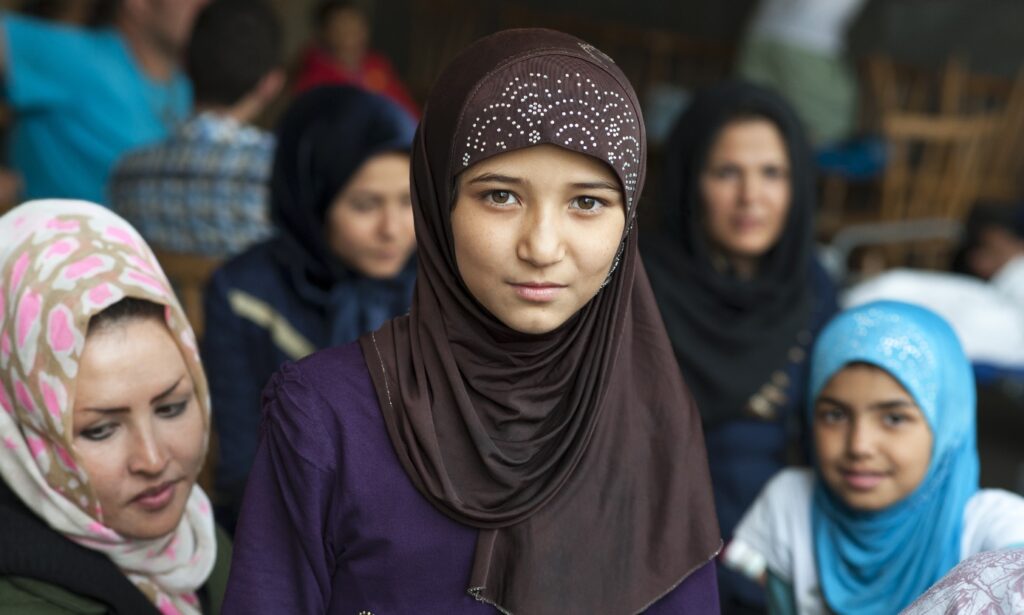Education Service Bulletin – Autumn 2024
Our dedicated Education Service ensures that all our young people are provided with educational opportunities in alignment with their age, ability and needs. Read our latest Education Service Bulletin below.
Start of new academic year!
Welcome back to a brand-new academic year! We hope you had a lovely Summer.
You will have hopefully seen in the press recently that Ofsted are scrapping their single-word school gradings, and when we know more about the new ‘School Report Cards’ that will replace this system, we will explain more in upcoming updates. We will still be ensuring that our children and young are able to attend the best possible schools for their needs.
As a reminder, the deadline for secondary school places for September 2025 is 31st October 2024. The deadline for primary school applications (for any child turning 4 between 01/09/2024 – 31/08/2025) in England is January 15th 2025.
The deadline for Primary and Secondary school admissions in Wales differs according the Local Authority. Please check Local Education Authority websites for more information.
The university admission deadline for UCAS applicants this academic year is 29th January 2025.

Our educational outcomes
As an Education Service, we have been busy working alongside our young people receiving results over the last couple of months to support transitions into further and higher education, training, and employment for the new academic year.
Some of our young people have overcome barriers to engaging with education and exams, working alongside us to consider future pathways suited to them. Some of our unaccompanied asylum-seeking young people have managed to access GCSE or other qualifications, and some young people achieved their results to progress onto higher education at their first-choice universities.
GCSEs
Our GCSE results phoneline was very busy in the days after the results were released!
Some of our young people have been sharing their fantastic achievements. One young person in particular was known to our education team throughout Year 11 as they were finding focusing at school tricky, which was impacting attendance. The young person managed to turn this around with the right support and after being disappointed with mocks results, they were able to apply themselves to achieve 8 GCSE’s grades 4 and above, a very strong set of results!
A-Levels
Our A-Level results phoneline was used by a few of our young people, who shared positive stories. We also received a couple of enquiries around student finance which we have been able to support with, helping ensure our young people following the pathway of higher education can access their entitled financial support.
One young person achieved an unconditional offer at their chosen university as well as receiving incredible results with a B grade in A-Level maths and a distinction in their T-Level study – which is a newer A-level equivalent qualification which sees young people undertake a valuable work placement alongside studying. The young person also did an extended project qualification and got an A! Our Education Service attended college meetings to ensure the young person had a suitable work placement and the right support in place.
Multiple 1:1 sessions also took place to support the young person to explore universities via UCAS and find the best fit for them, as well as providing guidance on their application and personal statement. The young person has always been interested in the computing and engineering field and is now set to study this at university. The education team has further supported with funding avenues for this young person.
Another young person succeeded in getting their first-choice place at university for performing arts. The education team initially worked alongside this young person as they were unsure which route they wanted to take and what would be the best options for them, so through a few bespoke 1:1 career exploration sessions, the young person was able to narrow this down.
Resources were shared with the young person allowing them to try out different subject areas and then come back to us to reflect on these. Ongoing support has been provided via the young person’s foster carers regarding queries related to higher education and student finance, and we were so pleased to hear this young person will now be following their dream pathway!
It is also worth highlighting our young people who weren’t receiving A-Level results but have achieved other qualifications at college level, such as a young person who has gained their Level 1 hair qualification after some initial struggles with settling in the course. The education team were able to support her 1:1 to continue and complete this and work with the college. This shows the commitment and resilience of this young person!
For a handful of young people who used our phone line and did not quite get the results they were hoping for, we were able to promptly support, and these young people now have places on alternative courses. Through our post-16 Support (see below), we were able to provide same-day support to our young people including liaising with colleges to establish options. We ran an in-depth career exploration session for one young person who was initially hoping to study A-Levels. However we were able to look at the other available options accessible to them, leading to them accessing a course at a local college that they were both happy with, but would keep their options open in line with their interests for further study.
Our Post-16 Support
Our Post-16 support is available for our young people in year 11 and beyond.
- Attending education meetings and reviews: We can support from both an education and trauma-informed perspective where there may be an upcoming transition, or concern around attendance or behaviours etc.
- Network liaison: We can engage with Virtual Schools and Local Authorities with regards to education matters.
- 1:1 careers meeting with young people on TEAMS: This may be an initial exploration of a young person’s interests and potential pathways right through to supporting with job/apprenticeship applications.
- 1:1 learning styles session with young people: This session would look at a young person’s individual way of learning. It can support them to identify techniques to use when studying, or to consider future opportunities that might work best for them in accordance with their own learning preference.
- Signposting to other organisations: This could be various resources, be that for building work skills, gaining work experience, training courses, mentoring or more bespoke support. These could be local organisations or online.
- Higher education guidance: Support with applications, exploring universities and navigating student finance for higher education.
- Revision support: Near the exam period we can offer group or 1:1 revision support as well as revision resources.
- Foster carer support: We run some sessions for carers, covering Post-16 options and can also provide this over TEAMS to local area groups or provide 1:1 advice to carers.
We have created a ‘Welcome to the World of Work’ booklet with tips for those looking to enter employment, as well as a document containing information and links to organisations and charities offering funding in connection with further/higher education/employment and training.
Home Communication Project
Our Home Communication Project is aimed at our children who are non-verbal or have significant speech, language and communication difficulties.
The project starts with the collation of relevant information and contact is made with the child’s school to ensure that a clear picture of approaches used in school is captured. A Home Communication Plan meeting is then arranged to identify what strategies would be helpful at home and any training or resources that might be needed. The report and a non-verbal communication profile (where relevant) is then written up.
The work so far has resulted in greater consistency in approaches used for developing communication at school and home. This has also resulted in a greater understanding of children’s needs and abilities. We’re proud to say that our foster carers have been invaluable in helping the professionals involved to understand the children’s communication, and it’s been great to provide a forum for them to share their knowledge and understanding.
The aim going forward is to start this work as soon as our Education Service is notified of a young person in our care with significant communication needs, so that support can be identified as soon as possible.
Phonics Screening Check
Phonics is a key strategy in developing reading and writing, and a huge amount of learning takes place in the Foundation Stage and KS1. All children in Year 1 will take the Phonics Screening Check which is used to assess children’s phonic decoding skills. To pass they must correctly read around 32/40 words. For this year, schools must administer the phonics screening check within the 1-week period from Monday 9th June 2025. Children who have not met the standard in Year 1 will re-take the check in Year 2.
To support our children’s continued learning at home, our Education Service have subscribed to PhonicsPlay.
Multiplication Tables Check
The Multiplication Tables Check (MTC) is statutory for all Year 4 pupils registered at state-funded schools, special schools, or academies, including free schools, in England.
The purpose of the MTC is to determine whether pupils can recall their times tables fluently, which is essential for future success in mathematics. It will help schools to identify pupils who have not yet mastered their times tables, so that additional support can be provided.
In 2024, schools must administer the MTC to all eligible Year 4 pupils within the 2-week period from Monday 2nd June 2025.
To support our children’s learning at home we have a subscription to Times Table Rockstars (multiplication). This subscription is open to all children within our fostering households – including our carer’s own children.
We also have subscriptions available for Numbots (addition).
Continuing Care guidance (Scotland)
The guidance to support the implementation of Continuing Care has been revised, updated and published by the Scottish Government.
In Scotland, young people have the right to stay with their foster carers, kinship carers or with their residential carers until their twenty-first birthday if this is right for them. This commitment is set out by the Children and Young People (Scotland) Act 2014, and is designed to respond to the needs of young people and enable young people to be supported through the relationships they have developed – so that they can live more independently when they feel ready.
This allows many of our young people to move into Higher & Further Education or training with a stable and settled home that can support and nurture them into adulthood and independent living.
Cultural Experiences Programme
One exciting new development this year is that we are trialling a new Cultural Experiences Programme.
We are offering small numbers of free tickets to events across the country across the entire academic year. This will give our young people in TACT access to a range of activities and experiences. We have already sent four families to the Wales Eisteddfod in August!
More dates will be available soon!
Support for Unaccompanied Asylum-Seeking Children
Our new TACT English tuition group will start on 12th September online to help support our young people further.
We also have our specialist support group, school/college-ready bags and home language leaflets explaining how the British education system works.

Our upcoming training and events
We are excited about a number of training days to help support our wider staff teams that work directly with foster carers and young people. These include Trauma Awareness in Education, Person Education Plans and Understanding Exclusions.
Read more about our Education Service.
